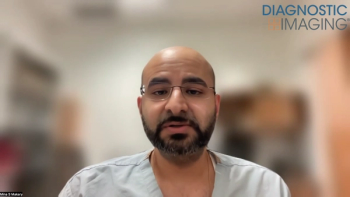
Compliance in Radiology
The importance of understanding compliance in radiology, from AHRA 2016.
What you don’t know can hurt you when it comes to compliance, Melody Mulaik, MSHS, president and co-founder of Coding Strategies, said at AHRA 2016.
Compliance is a topic no one likes to talk about, Mulaik said, sometimes it’s black and white, and sometimes it’s grey, but auditing is not going away so being well-informed is imperative.
“The fact that you don’t hear about audits doesn’t mean they don’t happen,” she said. “The vast majority of audits are private and get settled behind the scenes.”
It doesn’t matter if you think you are being honest and trying to do the right thing, no matter how hard you guy, anybody can get audited at any given time, Mulaik said.
How Organizations Decide to Go After You
“Anything that affects patients: allegations related to patient safety, patient harm, unnecessary services being provided, that’s going to get organizations coming in,” she said. “Several times a week, I get emailed about that was providing medically unnecessary services, that’s why they keep looking, because they keep finding all of these particular problems.”
Auditing organizations look for things that are big money, and imaging is big money and especially vulnerable, she noted.
Organizations can find tips from the media, but Mulaik cautioned especially about listservs.
“Anything you put out there is out there, be careful and don’t self-incriminate yourself or your organization,” she said. “Don’t ask public questions in a manner that says you are doing the wrong things, ask in general terms: ‘how do others bill this?’, ‘what is the right way to bill this?’, not ‘we are doing this, is that ok?’”[[{"type":"media","view_mode":"media_crop","fid":"52142","attributes":{"alt":"Melody Mulaik, MSHS","class":"media-image media-image-right","id":"media_crop_5375193680749","media_crop_h":"0","media_crop_image_style":"-1","media_crop_instance":"6465","media_crop_rotate":"0","media_crop_scale_h":"0","media_crop_scale_w":"0","media_crop_w":"0","media_crop_x":"0","media_crop_y":"0","style":"height: 171px; width: 170px; border-width: 0px; border-style: solid; margin: 1px; float: right;","title":"Melody Mulaik, MSHS","typeof":"foaf:Image"}}]]
Many audits stem from whistleblowers, so Mulaik urged the importance of interviewing employees that are leaving the organization and finding out any of their concerns.
What Organizations Go After
The actual definition of fraudulent behavior is debatable, Mulaik said. But activities that tend to fall under fraud include billing for services not performed; deliberately submitting duplicate bills; billing noncovered services as if they were covered; misrepresenting services rendered or the diagnosis for the patient to justify the services or equipment furnished; altering a claim form to obtain a higher amount paid; soliciting offering or receiving a kickback, bribe, or rebate; and employing an individual that has been excluded from Medicare.
Other activities that are abusive, but not fraud, Mulaik said, include unbundled charges, excessive charges, medically unnecessary services, and improper billing activities.
Who to Watch For
Mulaik listed several organizations known for auditing health care providers, she called out a few to watch out for:
• Zone Program Integrity Contractors: Mulaik called this group the “ugliest one” and suggested when you receive a letter from a ZPICs auditor, it’s important to understand and react to it. This group is looking for fraud, sometimes they will tell you they are going to do an audit, and sometimes they will ask you to audit yourself.
“This is not, ‘we did some random number generator and yours was called,’” Mulaik said. “[ZPICs] really thinks you are doing something wrong and they want to come find it, they are on a mission.”
ZPICs auditors can show up at your location so make sure to have a policy in place of what to do if an auditor comes knocking on the door and asking questions. It’s a legal process so make sure employees know they aren’t obligated to talk to someone without all the proper legal paperwork.
• Recovery Administrator Contractors: This group is in a bit of a lull period because they are in the process of rebidding and getting new contracts for CMS. RACs get a percentage of what they find, so they try to find money.
• Officer of the Inspector General: This group isn’t limited to health care but they serve to validate that the government is spending its money appropriately. The OIG encourages patients to report fraud so it’s important to make sure your patients understand why they are getting the bills they are getting.
What They Look For
Auditors will look at contracts: medical director contracts, lease arrangements, how your set up as a freestanding center, whether you are provider-based or not provider-based, etc., Mulaik said. Even if you’ve had a contract in place for 10 years, is it still accurate today?
Another thing to look out for is determining if your group is an outlier.
“Being an outlier if you’re in academic medicine is [expected], you’re leading-edge, bleeding-edge,” she said. “For community-based [practices] being an outlier isn’t always appropriate.”
Figure out why you’re an outlier, Mulaik urged.
“When it comes to compliance, we have all of these people looking at us, so we can’t just be close enough,” she said.
Newsletter
Stay at the forefront of radiology with the Diagnostic Imaging newsletter, delivering the latest news, clinical insights, and imaging advancements for today’s radiologists.













